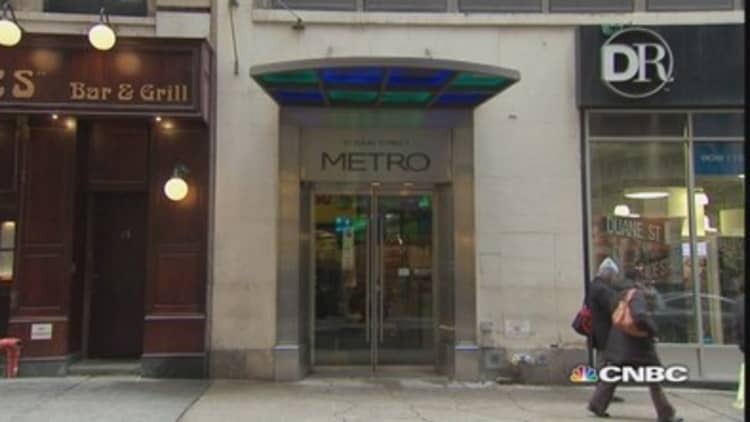
Real estate equity-crowdfunding projects are giving individual accredited investors a shot at owning a piece of residential and commercial Manhattan real estate—with investments as low as $10,000.
Owning a piece of Manhattan real estate may be a lofty pipe dream for some. But investors from around the world are now able to own a stake in major development projects in the Big Apple, without having the net worth of Donald Trump or Michael Bloomberg.
Equity crowdfunding, made possible under Title II of the 2012 Jumpstart Our Business Startups (JOBS) Act, is allowing individuals to invest in projects like real estate crowdfunding platform Prodigy Network's 17 John Street revamp—turning residential apartments into extended-stay condos. The platform raised $35 million for this particular project from the crowd in just eight months.
Brian Newman, director of business development for Prodigy Network, said they began crowdfunding to give investors access to specific real estate assets—which was impossible prior to the JOBS Act. Investors must be accredited, meaning they have made $200,000 or more in the past two years or have a net worth of at least $1 million, excluding their primary residence.
Read MoreYou hear lots about crowdfunding, but what is it?
Newman likened the commercial real estate investment to a safer bet for individuals, drawing on the 2008 financial crisis as an example.
"During 2007 and 2008, banks and institutional investors were dumping capital into commercial real estate, treasuries and gold, and individuals weren't able to do that," he said. "Crowdfunding gives them access to investments that institutions are investing in, which is important to everyone's portfolio. That's what has allowed us to raise over $80 million [from the crowd] in the past few years; we are creating a new, well-developed industry."
The 17 John Street project also has $78 million in backing via a traditional acquisition loan from Deutsche Bank, as well as another undisclosed institutional investor, Newman said.
Read MoreBest income investments of 2015
Equity investors are putting cash into joint ventures so they get equity in the deal, with the percentage based on the amount they invest, along with a preferred return. For the 17 John Street project, investors get a preferred return of 6 percent, along with up to a 15 percent internal rate of return. The development project is capitalized with both debt and equity, he said.
"We are anticipating investors will make between 16 percent and 19 percent annualized returns over three to five years," he said, adding the average investor put in $250,000, but the range was between $10,000 and $1 million among 250 equity investors from the crowd.
Real estate equity crowdfunded projects are a top draw in the U.S., according to Crowdnetic, a data-driven interactive platform tracking equity investments in projects in real time. Today the company, in partnership with CNBC, launched the CNBC Crowdfinance Real Estate Average. It is a daily arithmetic average of total capital commitments in excess of $1,000 raised by private U.S. companies listed on Crowdnetic. These equity sites are CrowdStreet, EarlyShares, LendZoan, Patch of Land, Prodigy Network, RealCrowd, Realty Mogul, RealPartner, Return on Change and SeedInvest.
Companies on the average represent the following real estate sectors: development; online services; investments; property management; rental and leasing; residential construction; green construction and manufactured housing.
Read MoreCNBC Crowdfinance Real Estate Average
Luan Cox, CEO of Crowdnetic, said real estate projects in particular have drawn $130 million from the crowd in the U.S. from September 2013 through the end of 2014, making it a leading sector.
"Real estate is especially attractive because of the hard asset behind it," Cox said. "It's perceived to be less risky, and the returns are pretty good."
And final rules are expected from the Securities and Exchange Commission on Title III of the JOBS Act later this year, which would allow both accredited and non-accredited investors alike to put cash into projects like 17 John. Real estate equity raises, however, will be capped at $1 million and under if the rules stay as they are currently written, Cox said.
Regardless, opening up the market to those who do not meet accreditation thresholds means more cash from the crowd, a win for entrepreneurs, she explained.


